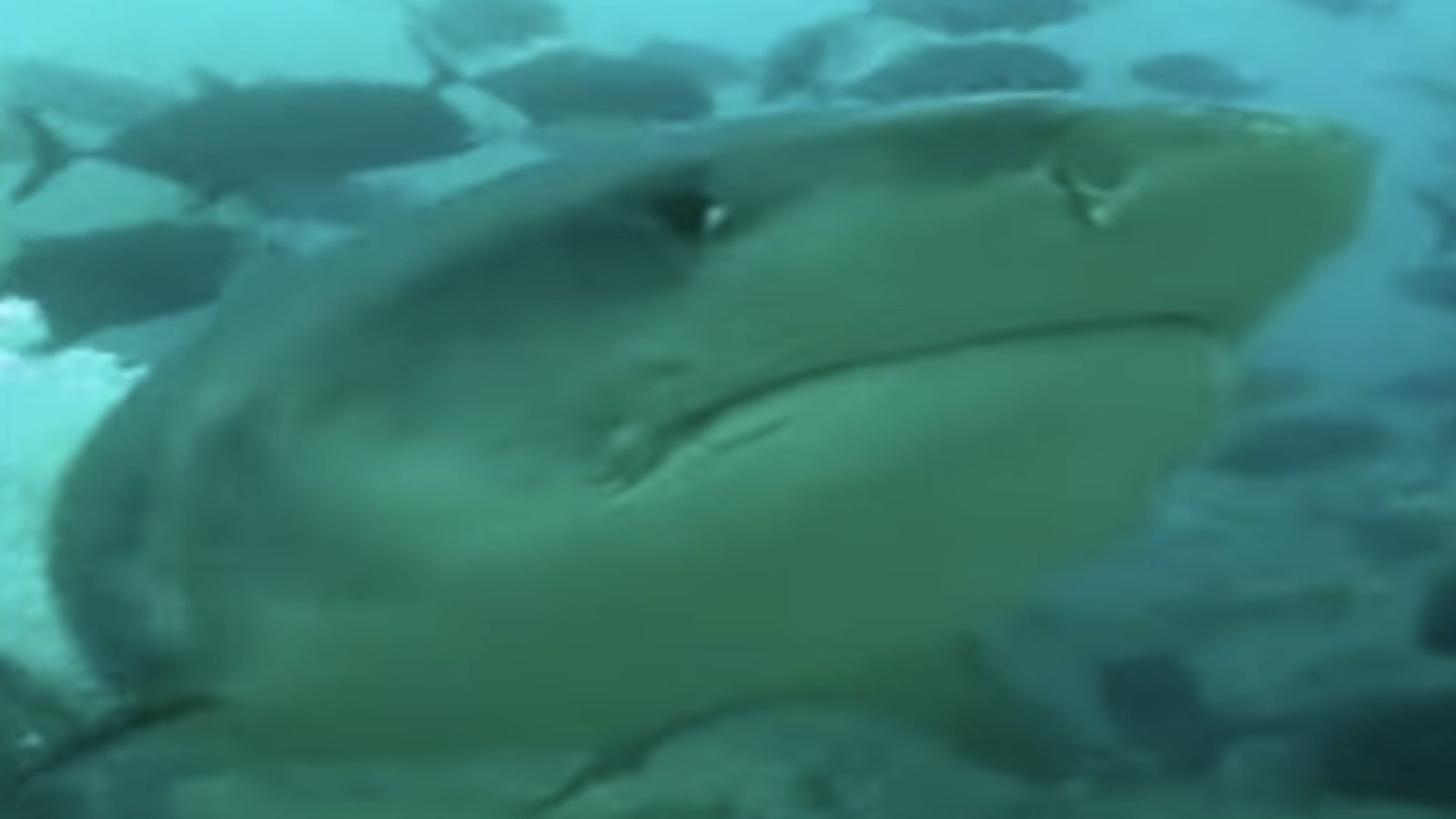A Canadian woman visiting the Turks and Caicos lost both her hands after attempting to take a picture with a shark in the water.
“On Friday 7th February a tourist was injured by a shark in the waters adjacent to Blue Hills, Providenciales. The individual was taken to Cheshire Hall Medical Centre where she was stabilized and later flown off island for further medical care. Upon confirmation of the incident the Department of Environment & Coastal Resources (DECR) issued a beach closure notification from Thompson’s Cove Beach to Froggies ATV, Blue Hills in an abundance of caution. The beach was reopened on Sunday, February 9th at 1pm after it was determined that the shark had moved to deeper water,” the Turks and Caicos Department of Environment and Coastal Resources (DECR) said in a statement.
“The shark was estimated to be approximately 6ft in length, however the species is yet to be confirmed. Further to the investigation, it has been determined that the tourist had attempted to engage with the animal from the shallows in an attempt to take photographs. The DECR would like to urge the public to always be aware of your surroundings, follow local advisories, and respect marine life. Swim in designated areas, avoid murky waters, never swim alone, and do not attempt to feed marine wildlife under any circumstances,” it added.
“The 55-year-old woman had to have both her hands amputated after the shark attack,” the New York Post noted.
TRENDING: A Canadian tourist lost both hands after a 6-foot shark bit her while she was swimming in Turks and Caicos, attempting to take a picture with the animal. pic.twitter.com/Ea6kjVlSka
— Resist the Mainstream (@ResisttheMS) February 17, 2025
From the New York Post:
The woman was a few yards offshore when the beast clamped its jaws on her arms, officials told the Daily Telegraph.
The tourist’s horrified husband jumped in the water to try to scare the shark away.
The victim, who has not been publicly identified, had to have one arm amputated below the wrist and the other halfway up her forearm, according to the Herald. She was flown back to Canada for additional treatment.
ADVERTISEMENTAuthorities have not determined the species of shark that bit her but said it appears to have been a bull shark.
A Canadian woman lost both her hands after being attacked by a shark while trying to take a photo with it in the shallow waters of Thompson Cove Beach, Turks and Caicos.
The 55-year-old had waded just a few meters into the water on February 7 when the estimated 1.83m-long shark… pic.twitter.com/S7Qs04GHRJ
— Hespress English (@HespressEnglish) February 15, 2025
More from The New York Times:
The woman, who had been snorkeling when she was bitten, was later transported to Canada to receive additional treatment, said Laura Dowrich, a spokeswoman for Experience Turks and Caicos, a tourism board for the islands.
The Royal Turks and Caicos Islands Police Force said it was investigating.
Global Affairs Canada, the country’s foreign affairs department, said it was aware of the episode and was contacting the local authorities for more information and to offer its assistance.
The tourist’s identity was not immediately released.
The beach was closed but reopened on Feb. 9 after the shark was found to have moved into deeper water, according to the Department of Environment and Coastal Resources. Turks and Caicos, an archipelago, is a British territory and one of the Caribbean’s fanciest tourist destinations. It is also home to one of the largest barrier reefs in the world.
Shark bites are extremely rare and are typically accidents, experts say. But sharks can cause severe wounds when they mistake humans for prey.
Across the world, there were 88 confirmed or potential shark bites logged last year by the International Shark Attack File at the University of Florida, an organization that tracks shark data.
This is a Guest Post from our friends over at 100 Percent Fed Up.



Join the conversation!
Please share your thoughts about this article below. We value your opinions, and would love to see you add to the discussion!